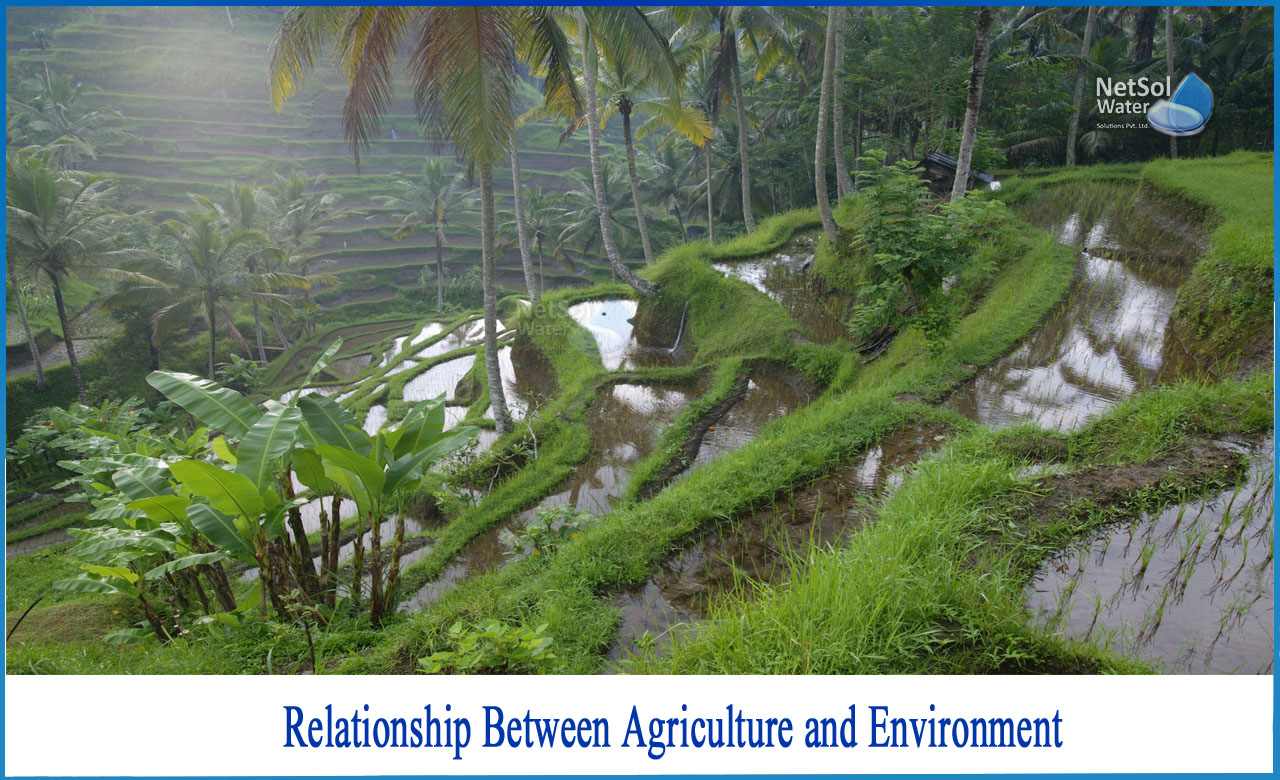What are the Relationship between agriculture and environment?
Agriculture's environmental impact is the effect that various farming practices have on the ecosystems around them, and how those effects can be traced back to those practices. Agriculture's environmental impact varies greatly depending on the practices used by farmers and the scale of practice. Farming communities that strive to reduce their environmental impact by changing their practices will adopt sustainable agriculture practices. Agriculture's negative impact is an old issue that continues to be a source of concern, even as experts devise new ways to reduce destruction and improve eco-efficiency. Though some pastoralism is environmentally beneficial, modern animal agriculture practices are more harmful to the environment than agricultural practicescentered on fruits, vegetables, and other biomass. Ammonia emissions from cattle waste continue to raise concerns about environmental pollution.
Agriculture's interactions with the environment
1: Soil Quality (Sustainability Issues):
Contamination, erosion, desertification, nutrient supply, and moisture balance are all issues here. Changes in land use practices such as deforestation, hedgerow removal, overgrazing, neglect of soil conservation methods, or farming of uncultivated land can all harm soils. Soil erosion is an especially serious issue in Mediterranean countries.
2: Water Quantity and Quality (Pollution Issues):
Nutrient and pesticide leaching, water extraction and drainage, and flooding are all issues in this area. Contamination of both ground and surface waters is a serious problem caused by high levels of production and use of manure and chemical fertilizers, especially in areas of intensive livestock or specialized crop production. Water quantity issues arise when water consumption exceeds critical levels in comparison to available water resources.
3: Concerns about Air Quality (Air Pollution):
The issues here are greenhouse gas and ammonia emissions. Agriculture accounts for approximately 8% of total greenhouse gas emissions, but it is the primary source of methane (from cattle production) and nitrogen oxide (from grazing livestock), accounting for approximately 40% of these two gases.
4: Biodiversity (conservation issues):
Genetic, species, and ecosystem diversity are all issues. Agriculture intensification has resulted in widespread extinctions of species and habitats. They support semi-natural habitats and wildlife species of conservation importance, but they are at risk of being abandoned or intensified. These threats may be exacerbated in a future environment of high food prices as a result of rising food and biofuel demand.
5: Landscape (aesthetic and cultural concerns):
This is more of an aesthetic and cultural issue. If farming becomes unprofitable as a result of marginalization, agricultural land may be abandoned. Alternatively, agricultural intensification can result in the loss of important landscape features such as hedges and ponds, as well as the expansion of fields and the replacement of traditional farm buildings with industrial structures. Access rights may be restricted in the interest of more efficient farming.
6:Concerns about food safety and animal welfare:
Rather than the physical environment, the issue here is the impact of agricultural practices on human health. Concerns have also been expressed about the effects of increased pesticide and drug use on the quality and safety of the food supply, leading to a push for organic farming.
Netsol Water is Greater Noida-based leading water & wastewater treatment plant manufacturer. We are industry's most demanding company based on client review and work quality. We are known as best commercial RO plant manufacturers, industrial RO plant manufacturer, sewage treatment plant manufacturer, Water Softener Plant Manufacturers and effluent treatment plant manufacturers. Apart from this 24x7 customer support is our USP. Call on +91-9650608473, or write us at enquiry@netsolwater.com for any support, inquiry or product-purchase related query.



